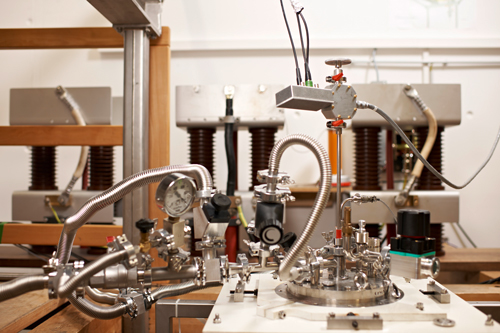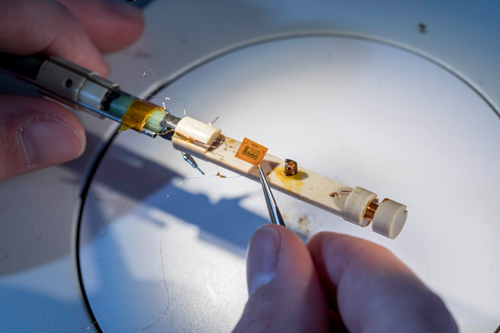IN A NUTSHELL
HyLICAL will contribute to reaching an energy demand of 8 kWh/kg and a liquefaction cost of <1.5 €/kg by validating an innovative and energy-efficient liquefier prototype for the cryogenic region (< 120 K) based on magnetic refrigeration.
The magnetocaloric hydrogen liquefaction (MCHL) technology developed in HyLICAL offers the following perspectives: i) Increased energy efficiency of >20% for small liquefaction volumes of <5 tonnes per day (TPD) and up to 50% for >5 TPD; ii) Reduced capital expenditures (CAPEX) and operating expenses (OPEX) by at least 20% in addition to the targeted energy savings; iii) Decentralized (local) production of liquid hydrogen (LH2), thus reducing the need for distribution and transport across long distances; iv) Coupling of the MCHL technology to hydrogen production from renewables (green hydrogen) for off-grid configurations; v) Integration into conventional liquefaction plants to increase their overall energy efficiency; vi) Application of the process for the liquefaction of hydrogen and for boil-off management of LH2 tanks.


The MCHL technology will enable the decentralized production of green LH2, in competition with LH2 from fossil sources, and will furthermore reduce the need to transport LH2 over large distances if there is a local green energy source available (e.g., bio-based or electricity from renewables). We will drive the Technology Relevance Level for MCHL technology from initially TRL 3 to TRL 5 at project end. This will be achieved by significantly increasing the liquefaction capacity of the demonstrator from the current SoA (<1 kg/day) to close to 100 kg/day. We will demonstrate that there are no intrinsic limitations that prevent the MCHL technology from being scaled up to suit flowrates above 100 TPD, as highlighted in the call, thus satisfying the need for large-scale production capacities needed in the heavy-duty mobility sector and elsewhere.
Our goals
Increase efficiency and reduce the costs of hydrogen liquefaction technologies
Contribute to the roll-out of next generation liquefaction technology to new bulk H2 production plants
Impact in a positive manner other Hydrogen Europe Roadmaps related to LH2
Address regulatory and safety issues related to LH2
Improve the sustainability and circularity aspects related to the liquefaction of hydrogen
Industries & think tanks
Develop novel magnetocaloric materials for H2 liquefaction.
Assess the financial viability through TEA-LCA and develop business plans for the exploitation of the magnetocaloric liquefier.
Universities
Develop new modelling tools for the design of magnetocaloric liquefaction units.
Develop roadmaps and perspectives for LH2.
Research Institutes
Assess safety aspects of supplies of LH2.
Develop training tools for safe LH2 operations.



